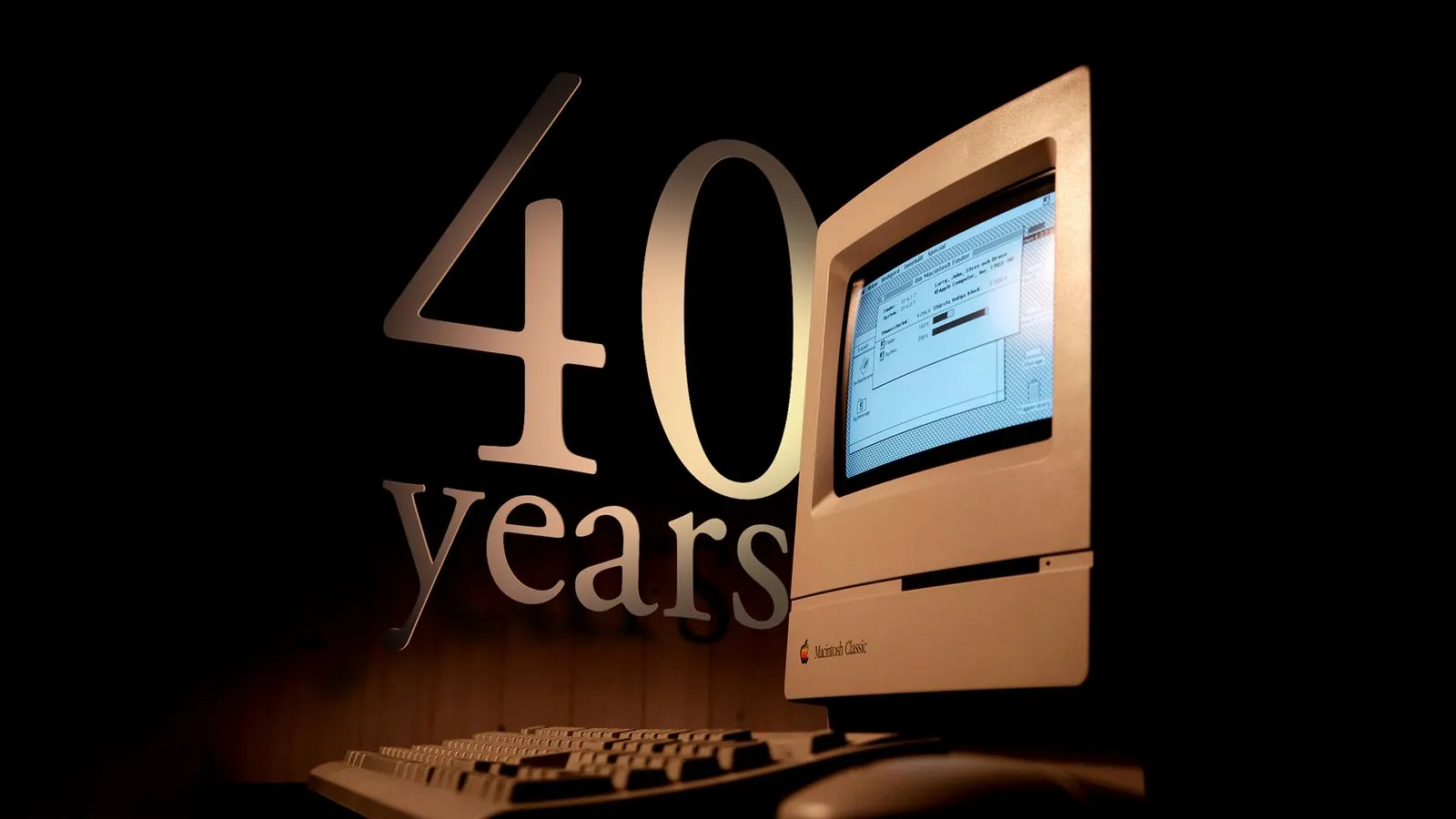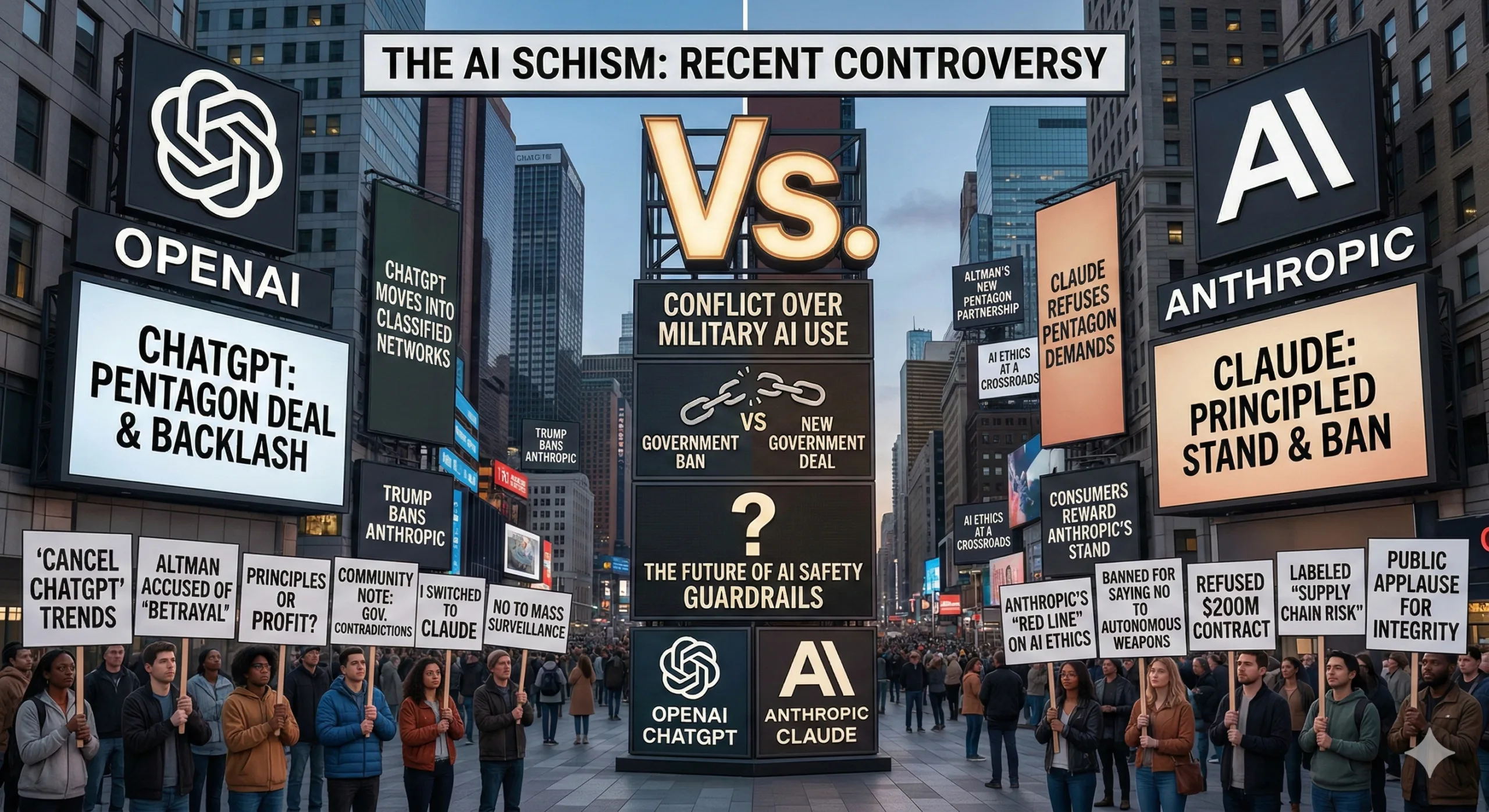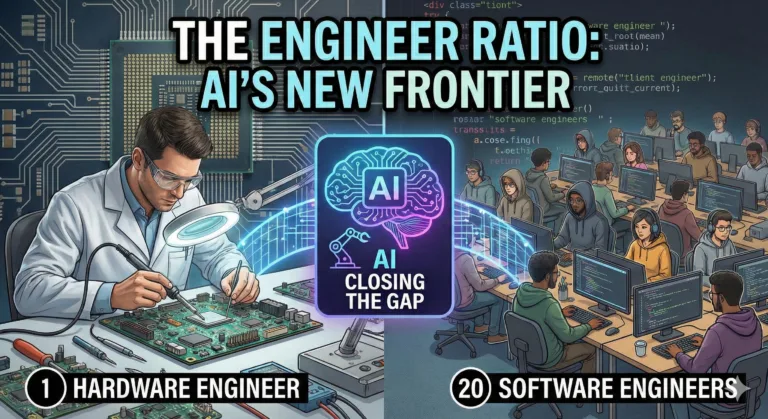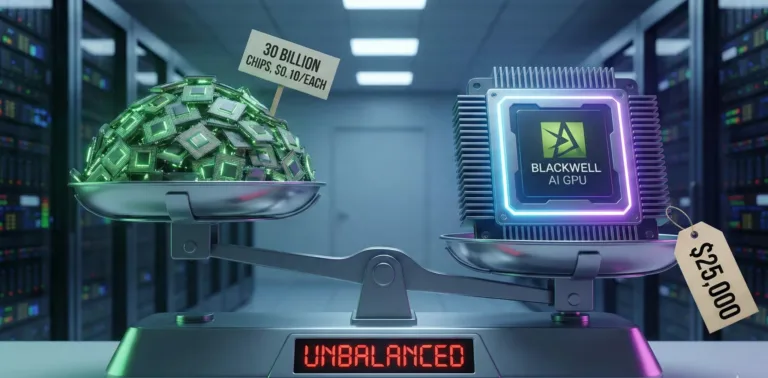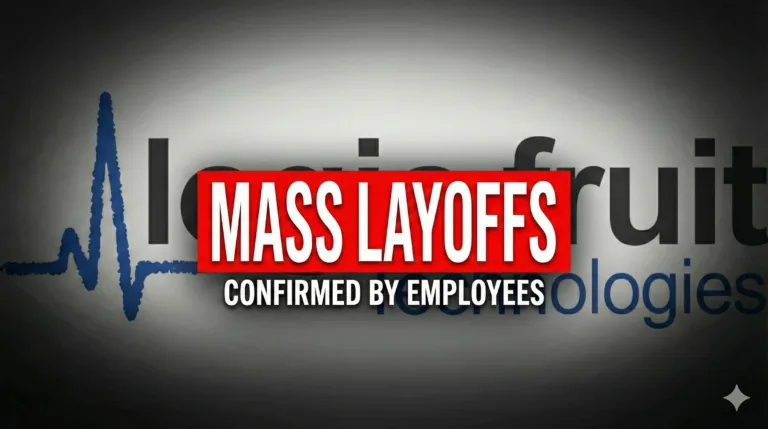“I think it’s safe to say that personal computers have become the most empowering tool we’ve ever created. They’re tools of communication, they’re tools of creativity,and they can be shaped by their user.”
– Steve Jobs
This year Mac turns 40 marking the 40th anniversary of the Macintosh, the iconic personal computer that changed the world of technology. The Mac, as it is affectionately known, was not the first computer to use a graphical user interface (GUI) or a mouse, but it was the first to make them accessible and appealing to the masses. The Mac revolutionized the fields of computing, design, art, education, and entertainment, and inspired generations of innovators and creators. In this blog post, we will take a look at the Mac’s remarkable journey and its lasting influence on the tech industry.
Mac Turns 40: Key Milestones in Mac’s History
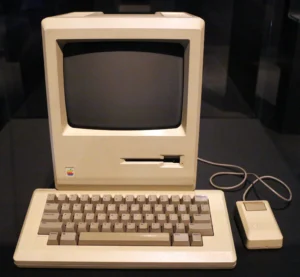
The Mac was introduced to the public on January 24, 1984, at a legendary event where Steve Jobs unveiled the machine with a dramatic demonstration. The Mac was unlike any other computer at the time, with its compact design, built-in screen, keyboard, and mouse, and its friendly and intuitive GUI. The Mac also came with a suite of software applications, such as MacWrite and MacPaint, that showcased its capabilities for word processing and graphics.
As Mac turns 40, The Mac’s hardware and software evolved over the years, introducing new features and innovations that kept it ahead of the curve. Some of the notable milestones in Mac’s history include:
- The introduction of the Macintosh II in 1987.
- The launch of System 7 in 1991, which was a major upgrade to the Mac’s operating system, adding features such as multitasking, aliases, drag-and-drop, and QuickTime.
- The debut of the Power Macintosh in 1994, which was the first Mac to use a PowerPC processor.
- The release of the iMac in 1998, which was a breakthrough product that reinvigorated Apple’s fortunes and popularity.
- The transition to Mac OS X in 2001
- The switch to Intel processors in 2006
- The introduction of the MacBook Air in 2008, which was the thinnest and lightest laptop ever made.
- The launch of the Retina display in 2012.
- The development of the M1 chip in 2020, which was Apple’s first custom-designed processor for the Mac, offering faster performance and longer battery life.
Influence on the Tech Industry
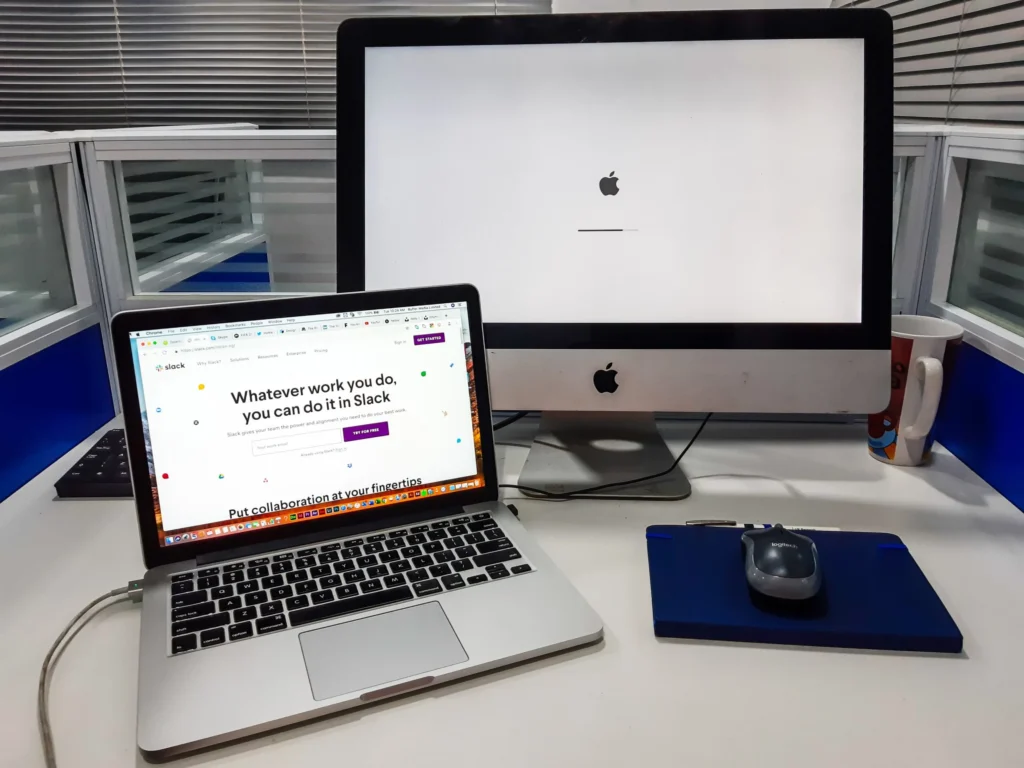
The Mac’s impact on the tech industry cannot be overstated as Mac turns 40 in 2024. The Mac was instrumental in popularizing the GUI and the mouse, which are now ubiquitous in computing devices. The Mac also pioneered the concept of desktop publishing, enabling users to create professional-quality documents and layouts with ease. The Mac also fostered the emergence of digital art, animation, music, video editing,gaming,and web design, empowering users to express their creativityand share their work with others. The Mac also seta high bar for user experience design,focusing on simplicity, elegance, usability and aesthetics.
The Mac also inspired many other tech companies and products,such as Microsoft Windows,Adobe Photoshop,Pixar Animation Studios,and Google Chrome. Many influential figures in the tech industry have creditedthe Mac as their source of inspiration or motivation,such as Bill Gates, Mark Zuckerberg, Tim Berners-Lee and Elon Musk.
Here are some quotes from tech CEOs about the Mac:
“To create a new standard it takes something that’s not just a little bit different. It takes something that’s really new and really captures people’s imagination. And the Macintosh – of all the machines I’ve ever seen – is the only one that meets that standard.”
-Bill Gates
“The Macintosh was the first computer that made me feel like I could do anything.”
– Elon Musk
I just had to take a look at this thing [Macintosh]. And I looked at it, and I thought it was amazing.
Tim Berners-Lee
I think if you do something pretty good, then you should go do something else wonderful. Not dwell on it for too long. Just figure out what’s next.
Steve Jobs
User Experiences and Stories

The Mac has touched millions of lives aroundthe world,from students to teachers, from artists to entrepreneurs,from hobbyists to professionals.The Mac has enabled users to learn new skills,pursue their passions,solve problems,and achieve their goals.Here are some examples of user experiences and stories from Mac users:
Malala Yousafzai is a Nobel Peace Prize laureate and an activist for girls’ education. She survived a Taliban assassination attempt in 2012, when she was shot in the head on her way to school in Pakistan. She recovered from her injuries and continued her advocacy for girls’ rights. She also founded the Malala Fund, a nonprofit organization that supports girls’ education around the world. Malala uses the Mac to write her blog, her speeches, and her books, such as I Am Malala and We Are Displaced. She also uses the Mac to communicate with her supporters and fellow activists through social media and video calls.
“The Mac is more than just a computer for me. It is my voice, my platform, my window to the world. It helps me share my story and my message with millions of people, and it helps me connect with other girls who are fighting for their education and their rights. The Mac is my ally, my friend, my teacher.”.
Malala Yousafzai, Novel Prize Winnerr
Susan Kare is a graphic designer who worked at Appleinthe early days ofthe Mac. She designed many ofthe iconic icons,fonts,and graphics for the original Macintosh,such as the smiling computer, the trash can, and the Chicago font. She also created some of the most memorable logos for Apple products, such as ClarisWorks, HyperCard, and QuickTime. Kare’s work has influenced many other designers and has been exhibited in museums around the world.
“I was so lucky to be part of the Macintosh project. It was a very collaborative and creative environment, where we were encouraged to try new things and experiment. I loved the challenge of designing icons and graphics that were simple, clear, and memorable, and that fit within the limited space and resolution of the screen. I also enjoyed working with Steve Jobs, who had a great vision and passion for the Macintosh, and who pushed us to do our best work”.
– Susan Kare, Graphic Designer, Apple
Mac’s Impact on Apple’s Business
The Mac has been a critical part of Apple’s business and identity since its inception. The Mac has generated billions of dollars in revenue and profit for Apple, and has helped the company survive through difficult times and thrive in competitive markets. The Mac has also shaped Apple’s culture and values,such as innovation,quality,and customer satisfaction.

The Mac has also influenced Apple’s other products and services,such as the iPod,the iPhone,the iPad, the Apple Watch,the Apple TV,the AirPods,the HomePod,the App Store,Apple Music,Apple TV+, and iCloud. Many of these products and services share the same design principles, software features, and ecosystem integration as the Mac, creating a seamless and consistent user experience across devices.
One of the key factors behind the Mac’s impact on Apple’s business is Steve Jobs, the visionary co-founder and former CEO of Apple. Jobs was the driving force behind the creation and development of the Mac.These are the saying from the GOAT himself “I think it’s safe to say that personal computers have become the most empowering tool we’ve ever created. They’re tools of communication, they’re tools of creativity,and they can be shaped by their user.” – Steve Jobs
Stay tuned for our upcoming articles where we unfold some verly less facts about macbooks.
Finance Hits the Same AI Wall as Insurance—85% Want Agents, Only 25% Can Trust Them

85% of finance firms want agentic AI but only 25% have governance—same trust gap as insurance. Sentient launches Arena to test agent explainability.
OpenAI Claims Better Safety Than Anthropic in Military AI Deal—Then Gets Roasted by Users

OpenAI on X annouced deal with Department of War ,claiming ‘more guardrails’ than Anthropic in DOD deal. Users on X mock this saying I hope your company goes down the toilet.
AI Assistants Have a Fatal Flaw: They Can’t Tell You Apart From Attackers

AI assistants can’t tell user commands from attacker commands. Prompt injection lets hackers access your email, files, and credit cards.
Discover more from WireUnwired Research
Subscribe to get the latest posts sent to your email.

